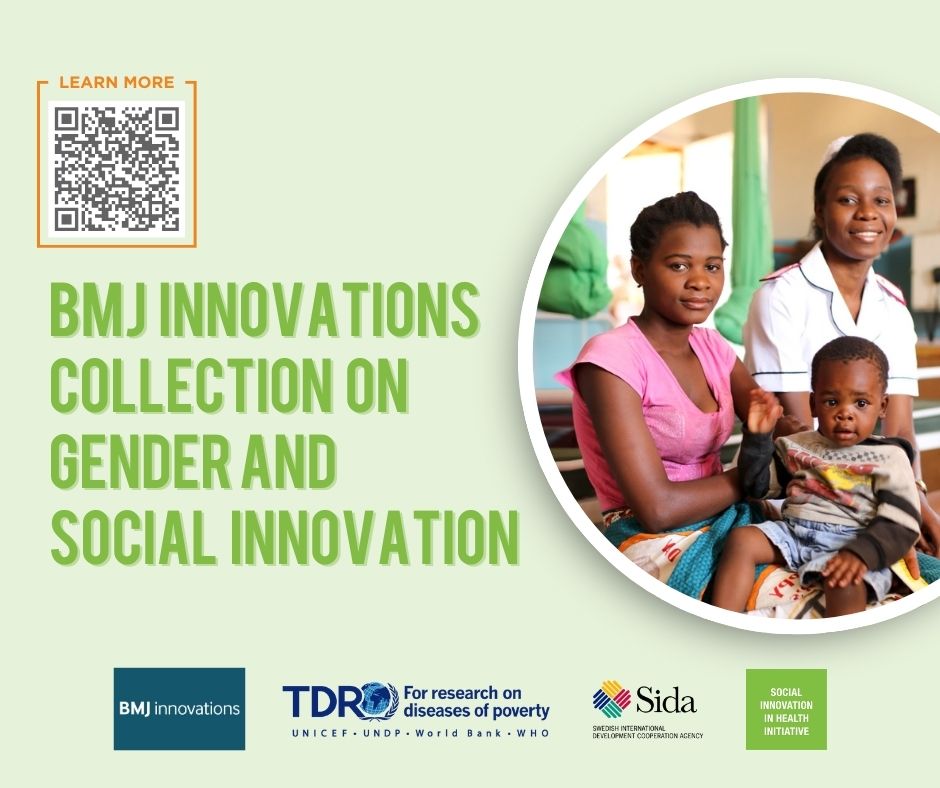A new BMJ Innovations Collection highlights the role of an intersectional gender approach in advancing research on social innovations in health. Developed in collaboration with TDR and the Social Innovation in Health Initiative (SIHI), this special issue showcases how inclusive, community-led solutions are addressing health inequities.
Titled “Gender and social innovation,” the Collection explores innovative social solutions to gender and other social axes of inequity in health and presents experiences from Africa, Asia and Latin America. Health challenges go beyond clinical interventions; social, economic, cultural and political factors deeply influence health outcomes. Understanding how and why gender intersects with socio-economic factors within wider systems of disadvantage is crucial for achieving health equity.

The Social Innovation in Health Initiative (SIHI) is a network of partner institutions and a community of stakeholders established in 2014 through TDR’s leadership. The Initiative aims to unlock the capacity of all health system actors and stakeholders, including innovators, communities, policy-makers, frontline workers, private sectors and academics, to work in collaboration and advance community-engaged social innovation in health care delivery in the Global South.
Authored by SIHI innovators and champions, the Collection calls for a deeper integration of an intersectional gender approaching social innovations in health. It highlights the importance of recognizing how intersecting factors—such as gender, age, ethnicity, social class and disability—shape health outcomes and access to services.
Articles in the collection include:
-Community participation in social innovations in health: a qualitative study of women’s engagement in a local tuberculosis clinic in the Philippines
-Water, sanitation and social innovations in health: a qualitative exploration of gender and intersecting social stratifiers in a rural ram-pump project in the Philippines
-Gender-based violence and associated factors in communities in Uganda: data from the social innovation in health initiative
This collection builds on SIHI’s commitment to equity-centered innovation through a decade of identifying and supporting more than 50 social innovations that prioritize community voices and lived experiences. By applying an intersectional gender lens, these innovations are not only more inclusive but also more effective in addressing the root causes of health disparities.
TDR encourages researchers, implementers and policy-makers to explore the Collection and reflect on how gender-responsive, community-driven approaches can strengthen health systems and accelerate progress toward the Sustainable Development Goals.
For more information, please contact Dr Mariam Otmani del Barrio.

